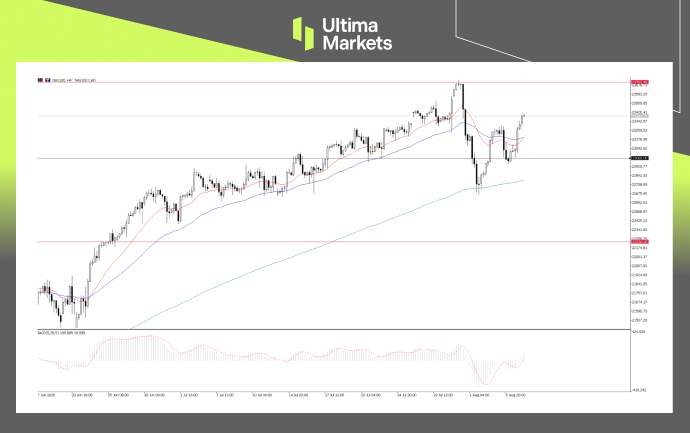
Ultima Markets App
Trade Anytime, Anywhere
Important Information
This website is managed by Ultima Markets’ international entities, and it’s important to emphasise that they are not subject to regulation by the FCA in the UK. Therefore, you must understand that you will not have the FCA’s protection when investing through this website – for example:
- You will not be guaranteed Negative Balance Protection
- You will not be protected by FCA’s leverage restrictions
- You will not have the right to settle disputes via the Financial Ombudsman Service (FOS)
- You will not be protected by Financial Services Compensation Scheme (FSCS)
- Any monies deposited will not be afforded the protection required under the FCA Client Assets Sourcebook. The level of protection for your funds will be determined by the regulations of the relevant local regulator.
Note: Ultima Markets is currently developing a dedicated website for UK clients and expects to onboard UK clients under FCA regulations in 2026.
If you would like to proceed and visit this website, you acknowledge and confirm the following:
- 1.The website is owned by Ultima Markets’ international entities and not by Ultima Markets UK Ltd, which is regulated by the FCA.
- 2.Ultima Markets Limited, or any of the Ultima Markets international entities, are neither based in the UK nor licensed by the FCA.
- 3.You are accessing the website at your own initiative and have not been solicited by Ultima Markets Limited in any way.
- 4.Investing through this website does not grant you the protections provided by the FCA.
- 5.Should you choose to invest through this website or with any of the international Ultima Markets entities, you will be subject to the rules and regulations of the relevant international regulatory authorities, not the FCA.
Ultima Markets wants to make it clear that we are duly licensed and authorised to offer the services and financial derivative products listed on our website. Individuals accessing this website and registering a trading account do so entirely of their own volition and without prior solicitation.
By confirming your decision to proceed with entering the website, you hereby affirm that this decision was solely initiated by you, and no solicitation has been made by any Ultima Markets entity.
I confirm my intention to proceed and enter this website Please direct me to the website operated by Ultima Markets , regulated by the FCA in the United KingdomTrump’s 100% Semiconductor Tariff Spurs Mixed Market Reaction on Techs
US President Trump announced a sweeping 100% tariff on semiconductor, targeting the imports from countries that are not investing in U.S. manufacturing. The move is part of aim for broader push to strengthen domestic chip production, according to Trump administration.
U.S. to Impose Sweeping Tariff on Foreign-Made Semiconductors
President Donald Trump has announced a 100% tariff on imported semiconductors, targeting companies that have not committed to investing in U.S.-based manufacturing. The policy marks a bold escalation in Trump’s push to revive American chipmaking and reduce dependency on foreign supply chains, especially from Asia.
The move was unveiled during a meeting with Apple CEO Tim Cook, emphasizing Washington’s strategy to use trade measures as leverage for reshoring high-tech industries.
Under the plan, exemptions will be granted to firms that are:
- Currently building U.S. chip manufacturing facilities, or
- Have formally committed to doing so, with follow-through required to avoid retroactive tariffs.
Major players like TSMC, Intel, Nvidia, and Apple—all with significant U.S. operations or expansion plans—are expected to be shielded from the punitive duties.
Mixed Market Reaction: Tech Stocks Rally, Chip Index Slips
The announcement drew a mixed response from markets:
- Apple surged ~5% intraday after reaffirming its $600B U.S. investment plan.
- Nvidia, Micron, GlobalFoundries and other U.S.-committed firms also gained, lifting the Nasdaq 100 Index to another strong session on Wednesday.
- However, the broader Philadelphia Semiconductor Index (SOX) slipped more than 1%, reflecting broader caution over global chip supply disruption and uncertainty about foreign producers’ next steps.
Taiwan, home to many leading semiconductor firms, faces elevated trade risks. China-aligned chipmakers, such as SMIC and Huawei, are seen as particularly vulnerable to these tariffs and could suffer from crippling export restrictions into the U.S.

NAS100, 4-H Chart | Source: Ultima Market MT5
The Nasdaq 100 extended its rebound following a brief post-NFP dip, regaining ground above the 23,000 key level.
The renewed strength reflects investor confidence that the recently announced U.S. semiconductor tariffs will not materially impact U.S.-based chipmakers, many of which already have domestic manufacturing footprints.
However, with the index now hovering near record highs, sentiment remains cautiously optimistic. Investors appear supportive of the policy direction, but concerns linger over potential retaliation or supply chain disruptions that could temper further upside.
Technically, the key support on 23,000 remains a focus level that could impact on investors sentiment.
Disclaimer
Comments, news, research, analysis, price, and all information contained in the article only serve as general information for readers and do not suggest any advice. Ultima Markets has taken reasonable measures to provide up-to-date information, but cannot guarantee accuracy, and may modify without notice. Ultima Markets will not be responsible for any loss incurred due to the application of the information provided.
Why Trade Metals & Commodities with Ultima Markets?
Ultima Markets provides the foremost competitive cost and exchange environment for prevalent commodities worldwide.
Start TradingMonitoring the market on the go
Markets are susceptible to changes in supply and demand
Attractive to investors only interested in price speculation
Deep and diverse liquidity with no hidden fees
No dealing desk and no requotes
Fast execution via Equinix NY4 server








